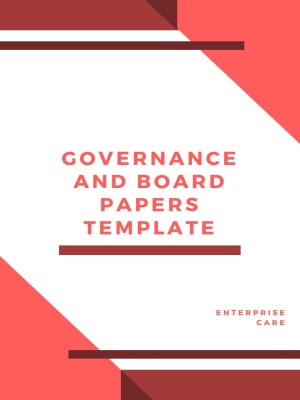Description
Overview and Purpose
The Self-paced Director Development Program is a valuable and practical governance resource, designed to be completed over time and at your own pace. It is ideal for use by both Directors and senior staff within your organisation. Ideal for use by busy professionals, the program can be done anywhere, anytime.
The purpose of this Program is to support new and existing Directors who wish to commit to their own professional development in the chosen field of governance.
The Program is intended to:
- support the improvement of good governance practices;
- provide Directors with practical insights into the role, responsibilities and requirements placed on them to meet their governance responsibilities;
- highlight professional development areas for follow up;
- offer a workable framework to support Directors managing both their own and the Board’s continuous professional improvement; and
- provide reference to further information sources for follow-up purposes.
The Program includes an opportunity for users to firstly assess the extent of their governance practices knowledge; secondly, identify areas that require further training and professional development; and thirdly, design specific actions to support their own governance development.
Topics covered
The role of the Board and governance
- Context within which the organisation operates;
- Legal compliance and legislative requirements;
- Vision, Mission and Strategic Plan;
- Responsibilities of organisation;
- Maintaining required books and records;
- Strategic planning;
- Governance models; and
- Risk management.
The role of Directors
- Independent approach to the Board;
- Role of a Director;
- Role of a Chair;
- Conduct of meetings;
- Performance review of the Board;
- Role of Committees;
- Succession planning;
- Finance and audit; and
- Induction.
The organisation structure and operations
- Information and communication flow;
- Roles and responsibilities of staff and volunteers;
- Committees/Working Parties/Special Interest Groups;
- Employer responsibilities; and
- Relationship and stakeholders.





